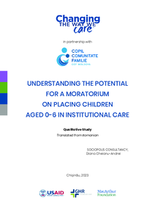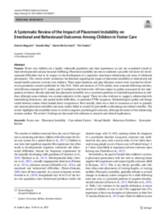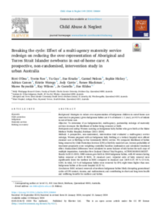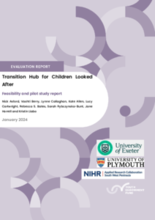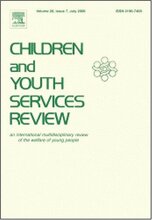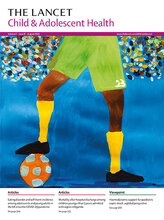Displaying 1 - 10 of 271
This study analyzes statistical data on the institutionalization of children aged between 0-6 years; examines current practices of prevention, identification, assistance, referral, and placement in institutions and family based alternative care; evaluates the knowledge and attitudes of professionals and decision makers and outlines recommendations for the development and introduction of a moratorium on placing children aged between 0-6 years in residential care.
The current review synthesizes the literature regarding the impact of placement instability on behavioural and mental health outcomes in foster care children. Three major databases and grey literature sources were searched for all relevant quantitative research published by July 2019.
The objective of this study was to determine if an Indigenous-led, multi-agency, partnership redesign of maternity services at a maternity hospital in Brisbane, New Zealand would decrease the likelihood of Indigenous babies being removed at birth and being placed in out-of-home care..
This perspective piece considers the impact on infant and perinatal health in the context of COVID-19 with particular emphasis on relational dynamics and attachment assessments, using a case study of a foster carer and her child in an out-of-home-care placement. Understanding these dynamics is crucial for safeguarding the well-being of both caregivers and vulnerable children during this challenging time.
This is a feasibility and pilot evaluation of the Transition Hub -- a multi-disciplinary team which aims to support young people aged 11 to 17 who are making the transition into care or experiencing a placement transition in England. The feasibility phase explored the feasibility of delivery and aimed to provide lessons for further research. The pilot phase examined whether the Transition Hub might evidence promise on desired outcomes and sought to offer further learning about delivery and acceptability.
Children in families affected by substance use disorders are at high risk of being placed in out-of-home care (OOHC). The authors of this Australia-based study aimed to describe the characteristics of parents who inject drugs and identify correlates associated with child placement in OOHC.
This longitudinal study evaluates the effectiveness of BLINDED intervention, an intervention that utilizes family search and engagement practices to place children who enter foster care in kinship placements as quickly as possible in the U.S.
This report aims to shed light on care pathways and placement stability for infants in Wales, using data from the Children Looked After census collected by Welsh Government. The report is divided into two parts, the first of which focuses on infant entry to care and the second, which focuses on pathways and placement outcomes.
From 2021 to 2023, the United States Department of Health and Human Services (HHS) has taken administrative actions to prioritize the implementation of Family First prevention services. These actions minimize traumatic deployments of CPS, reduce the use of family separations, and bolster support for families providing kinship care. In this brief, the authors highlight where progress has been made—and where the Administration for Children and Families (ACF) could still take additional steps in 2024.
In this Health Policy, the authors map the global variation in age restrictions and durations of stay in prison with a primary caregiver. They show a broad range of approaches and provisions for the placement of children in prison.

